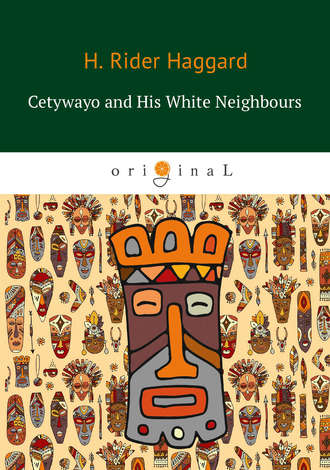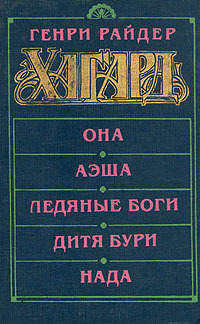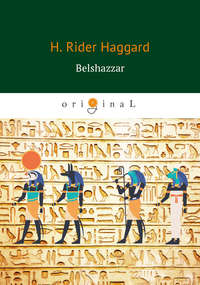
Полная версия
Cetywayo and His White Neighbours
Thwarted in his designs on the Swazis, Cetywayo next turned his attention to the Transvaal Boers. The Zulus and the Boers had never been good friends since the days of the massacre of Retief, and of late years their mutual animosity had been greatly increased owing to their quarrels about the boundary question previously alluded to. This animosity reached blood-heat when the Boer Government, acting with the arrogance it always displayed towards natives, began to lay its commands upon Cetywayo about his relations with the Amaswazi, the alleged trespassing on Boer territory, and other matters. The arrogance was all the more offensive because it was impotent. The Boers were not in a position to undertake the chastisement of the Zulus. But the king and council of Zululand now determined to try conclusions with the Transvaal on the first convenient opportunity, and this time without consulting the Government of Natal. The opportunity soon occurred. Secocoeni, the powerful chief of the Bapedi, one of the tribes whose territories border on the Transvaal, came to a difference with the Boers over another border question. There is good ground for supposing that Cetywayo incited him to withstand the Boer demands; it is certain that during the course of the war that followed he assisted him with advice, and more substantially still, with Zulu volunteers.
To be brief, the Secocoeni war resulted in the discomfiture of the Transvaal forces. Another result of this struggle was to throw the whole state into the most utter confusion, of which the Dutch burghers, always glad of an opportunity to defy the law, took advantage to refuse to pay taxes. National bankruptcy ensued, and confusion grew worse confounded.
Cetywayo took note of all this, and saw that now was his opportunity to attack. The Boers had suffered both in morale and prestige from their defeat by Secocoeni, who was still in arms against them; whilst the natives were proportionately elated by their success over the dreaded white men. There was, he knew well, but little chance of a rapid concentration to resist a sudden raid, especially when made by such a powerful army, or rather chain of armies, as he could set in motion. Everything favoured the undertaking; indeed, humanly speaking, it is difficult to see what could have saved the greater part of the population of the Transvaal from sudden extinction, if a kind Providence had not just then put it into the head of Lord Carnarvon to send out Sir T. Shepstone as Special Commissioner to their country. When Cetywayo heard that his father Sompseu (Sir T. Shepstone) was going up to the Transvaal, he held his hand, sent out spies, and awaited the course of events. The following incident will show with what interest he was watching what took place. At the Vaal River a party of Boers met the Special Commissioner and fired salutes to welcome him. It was immediately reported to Cetywayo by his spies that the Boers had fired over Sir T. Shepstone’s waggon. Shortly afterwards a message arrived at Pretoria from Cetywayo to inquire into the truth of the story, coolly announcing his intention of sweeping the Transvaal if it were true that “his father” had been fired at. In a conversation with Mr. Fynney after the Annexation Cetywayo alludes to his intentions in these words: —
“I heard that the Boers were not treating him (Sompseu) properly, and that they intended to put him in a corner. If they had done so I should not have waited for anything more. Had but one shot been fired, I should have said, ‘What more do I wait for? they have touched my father.’ I should have poured my men over the land, and I can tell you, son of Mr. Fynney, the land would have burned with fire.” This will show how eagerly Cetywayo was searching for an excuse to commence his attack on the Transvaal. When the hope of finding a pretext in the supposed firing at Sir T. Shepstone or any incident of a similar nature faded away, he appears to have determined to carry out his plans without any immediate pretext, and to make a casus belli of his previous differences with the Government of the Republic. Accordingly he massed his impis (army corps) at different points along the Transvaal border, where they awaited the signal to advance and sweep the country. Information of Cetywayo’s doings and of his secret plans reached Pretoria shortly before the Annexation, and confirmed the mind of the Special Commissioner as to the absolute necessity of that measure to save the citizens of the Republic from coming to a violent end, and South Africa from being plunged into a native war of unexampled magnitude. The day before the Annexation took place, when it was quite certain that it would take place, a message was sent to Cetywayo by Sir T. Shepstone telling him of what was about to happen, and telling him too in the sternest and most straightforward language, that the Transvaal had become the Queen’s land like Natal, and that he must no more think of attacking it than he would of attacking Natal. Cetywayo on receiving the message at once disbanded his armies and sent them to their kraals. “Kabuna,” he said to the messenger, “my impis were gathered; now at my father’s (Sir T. Shepstone’s) bidding I send them back to their homes.”
This fact, namely, that at the bidding of his old mentor Sir T. Shepstone, Cetywayo abandoned his long-cherished plans, and his undoubted opportunity of paying off old scores with the Boers in a most effectual manner, and gave up a policy that had so many charms for him, must be held by every unprejudiced man to speak volumes in his favour. It must be remembered that it was not merely to oblige his “father Sompseu” that he did this, but to meet the wishes of the English Government, and the act shows how anxious he was to retain the friendship and fall in with the views of that Government. Evidently Cetywayo had no animosity against us in April 1877.
In his interview with Mr. Fynney, Cetywayo speaks out quite frankly as to what his intentions had been; he says, “I know all about the soldiers being on their way up, but I would have asked Sompseu to allow the soldiers to stand on one side for just a little while, only a little, and see what my men could do. It would have been unnecessary for the Queen’s people to trouble. My men were all ready, and how big must that stone have been, with my father Sompseu digging at one side and myself at the other, that would not have toppled over? Even though the size of that mountain (pointing to a mountain range), we could put it on its back. Again I say I am glad to know the Transvaal is English ground; perhaps now there may be rest.”
This and other passages show beyond all doubt from what an awful catastrophe the Transvaal was saved by the Annexation. That Cetywayo personally detested the Boers is made clear by his words to Mr. Fynney. “‘The Boers,’ he says, ‘are a nation of liars; they are a bad people, bad altogether. I do not want them near my people; they lie and claim what is not theirs, and ill-use my people. Where is Thomas?’ (President Burgers). I informed him that Mr. Burgers had left the Transvaal. ‘Then let them pack up and follow Thomas,’ said he. ‘Let them go. The Queen does not want such people as those about her land. What can the Queen make of them or do with them? Their evil ways puzzled both Thomas and Rudolph, Landdrost of Utrecht; they will not be quiet.’”
It is very clear that if Cetywayo had been left to work his will, a great many of the Boers would have found it necessary to “pack up and follow Thomas,” whilst many more would have never needed to pack again.
I am aware that attempts have been made to put another explanation on Cetywayo’s warlike preparations against the Boers. It has been said that the Zulu army was called up by Sir T. Shepstone to coerce the Transvaal. It is satisfactory to be able, from intimate personal knowledge, to give unqualified denial to that statement, which is a pure invention, as indeed is easily proved by clear evidence, which I have entered into in another part of this book. Cetywayo played for his own hand all along, and received neither commands nor hints from the Special Commissioner to get his army together. Indeed, when Sir T. Shepstone discovered what was going on, he suffered great anxiety lest some catastrophe should occur before he was in a position to prevent it. Nothing short of the Annexation could have saved the Transvaal at that moment, and the conduct of the Boers after the danger had been taken on to the shoulders of the Imperial Government is a startling instance of national ingratitude.
Here again the Zulu king was brought face to face with the ubiquitous British Government, and that too at a particularly aggravating moment. He was about to commence his attack when he was met with a polite, “Hands off; this is British territory.” No wonder that we find him in despair renewing his prayer that Sompseu will allow him to make “one little raid only, one small swoop,” and saying that “it is the custom of our country, when a new king is placed over the nation, to wash their spears, and it has been done in the case of all former kings of Zululand. I am no king, but sit in a heap. I cannot be a king till I have washed my assegais.” All of which is doubtless very savage and very wrong, but such is the depravity of human nature, that there is something taking about it for all that.
It was at this period of the history of South Africa that many people think we made our crowning mistake. We annexed the Transvaal, say they, six months too soon. As things have turned out, it would have been wiser to have left Zulus and Transvaal Boers to try conclusions, and done our best to guard our own frontiers. There is no doubt that such a consummation of affairs would have cleared the political atmosphere wonderfully; the Zulus would have got enough fighting to last them some time, and the remainder of the Boers would have entreated our protection and become contented British subjects; there would have been no Isandhlwana and no Majuba Hill. But to these I say who could foresee the future, and who, in the then state of kindly feeling towards the Boers, could wish to leave them, and all the English mixed up with them, to undergo, unprepared as they were, the terrible experience of a Zulu invasion? Besides, what guarantee was there that the slaughter would stop in the Transvaal, or that the combat would not have developed into a war of races throughout South Africa? Even looking at the matter in the light of after events, it is difficult to regret that humanity was on this occasion allowed to take precedence of a more cold-blooded policy. If the opponents of the Annexation, or even the members of the Transvaal Independence Committee, knew what a Zulu invasion meant, they would scarcely have been so bitter about that act.
From the time of the Annexation it was a mere matter of opinion as to which direction the Zulu explosion would take. The safety-valves were loaded whilst the pressure daily increased, and all acquainted with the people knew that it must come sooner or later.
Shortly after the Transvaal became British territory the old Zulu boundary question came to the fore again and was made more complicated than ever by Sir T. Shepstone, who had hitherto favoured the Zulu claims, taking the Boer side of the controversy, after examination of the locality and of persons acquainted with the details of the matter. There was nothing wonderful in this change of opinion, though of course it was attributed to various motives by advocates of the Zulu claims, and there is no doubt that Cetywayo himself did not at all like it, and, excited thereto by vexation and the outcry of his regiments, adopted a very different and aggressive tone in his communications with the English authorities. Indeed his irritation against the Boers and everybody connected with them was very great. Probably if he had been left alone he would in time have carried out his old programme, and attacked the Transvaal. But, fortunately for the Transvaal, which, like sailors and drunken men, always seems to have had a special Providence taking care of it: at this juncture Sir Bartle Frere appeared upon the scene, and after a few preliminaries and the presentation of a strong ultimatum, which was quite impracticable so far as Cetywayo was concerned, since it demanded what it was almost impossible for him to concede – the disbandment of his army – invaded Zululand.
It is generally supposed that the Natal colonists had a great deal to do with making the Zulu war, but this is not the case. It is quite true that they were rejoiced at the prospect of the break-up of Cetywayo’s power, because they were very much afraid of him and of his “celibate man-slaying machine,” which, under all the circumstances, is not wonderful. But the war was a distinctly Imperial war, made by an Imperial officer, without consultation with Colonial authorities, on Imperial grounds, viz., because Cetywayo menaced Her Majesty’s power in South Africa. Of course, if there had been no colonies there would have been no war, but in that way only are they responsible for it. Natal, however, has not grudged to pay 250,000 pounds towards its expenses, which is a great deal more than it can afford, and, considering that the foolish settlement made by Sir Garnet Wolseley is almost sure to involve the colony in trouble, quite as much as should be asked.
The fact of the matter was, that Sir Bartle Frere was a statesman who had the courage of his convictions; he saw that a Zulu disturbance of one kind or another was inevitable, so he boldly took the initiative. If things had gone right with him, as he supposed they would, praise would have been lavished on him by the Home authorities, and he would have been made a peer, and perhaps Governor-General of India to boot; but he reckoned without his Lord Chelmsford, and the element of success which was necessary to gild his policy in the eyes of the home public was conspicuous by its absence. As it was, no language was considered to be too bad to apply to this “imperious proconsul” who had taken upon himself to declare a war. If it is any consolation to him, he has at any rate the gratitude of the South African Colonies, not so much for what he has done, for that is being carefully nullified by the subsequent action of the Home Government, but because, believing his policy to be right, he had the boldness to carry it out at the risk of his official reputation. Sir Bartle Frere took a larger view of the duties of the governor of a great dependency than to constitute himself the flickering shadow of the Secretary of State in Downing Street, who, knowing little of the real interests of the colony, is himself only the reflection of those that hold the balance of power, to whom the subject is one of entire indifference, provided that there is nothing to pay.
The details of the Zulu war are matters of melancholy history, which it is useless to recapitulate here. With the exception of the affair at Rorke’s Drift, there is nothing to be proud of in connection with it, and a great deal to be ashamed of, more especially its final settlement. There is, however, one point that I wish to submit to the consideration of my readers, and that is, that Cetywayo was never thoroughly in earnest about the war. If he had been in earnest, if he had been determined to put out his full strength, he would certainly have swept Natal from end to end after his victory at Isandhlwana. There was no force to prevent his doing so: on the contrary, it is probable that if he had advanced a strong army over the border, a great number of the Natal natives would have declared in his favour through fear of his vengeance, or at the least would have remained neutral. He had ample time at his disposal to have executed the manoeuvre twice over before the arrival of the reinforcements, of which the results must have been very dreadful, and yet he never destroyed a single family. The reason he has himself given for this conduct is that he did not wish to irritate the white man; that he had not made the war, and was only anxious to defend his country.
When the fighting came to an end after the battle of Ulundi, there were two apparent courses open to us to take. One was to take over the country and rule it for the benefit of the Zulus, and the other to enforce the demands in Sir Bartle Frere’s ultimatum, and, taking such guarantees as circumstances would admit of, leave Cetywayo on the throne. Instead of acting on either of these plans, however, Sir Garnet Wolseley proceeded, in the face of an extraordinary consensus of adverse opinion, which he treated with calm contempt, to execute what has proved to be a very cruel settlement. Sir Garnet Wolseley has the reputation of being an extremely able man, and it is only fair to him to suppose that he was not the sole parent of this political monster, by which all the blood and treasure expended on the Zulu war were made of no account, but that it was partially dictated to him by authorities at home, who were anxious to gratify English opinion, and partly ignorant, partly careless of the consequences. At the same time, it is clear that he is responsible for the details of the scheme, since immediately after the capture of Cetywayo he writes a despatch about them which was considered so important, that a member of his staff was sent to England in charge of it. In this document he informs the Secretary of State that Cetywayo’s rule was resolutely built up “without any of the ordinary and lawful foundations of authority, and by the mere vigour and vitality of an individual character.” It is difficult to understand what Sir Garnet means in this passage. If the fact of being the rightful and generally accepted occupant of the throne is not an “ordinary and lawful foundation of authority,” what is? As regards Cetywayo having built up his rule by the “mere vigour and vitality of an individual character,” he is surely in error. Cetywayo’s position was not different to that of his immediate predecessors. If Sir Garnet had applied the remark to Chaka, the first king, to the vigour and vitality of whose individual character Zululand owes its existence as a nation, it would have been more appropriate. The despatch goes on to announce that he has made up his mind to divide the country into thirteen portions, in order to prevent the “possibility of any reunion of its inhabitants under one rule,” and ends in these words: “I have laboured with the great aim of establishing for Her Majesty’s subjects in South Africa, both white and coloured, as well as for this spirited people against whom unhappily we have been involved in war, the enduring foundations of peace, happiness and prosperity.” The spirited people were no doubt vastly thankful, but the white man, reading such a passage as this, and knowing the facts of the case, will only recognise Sir Garnet Wolseley’s admirable talent for ironical writing.
Sir Garnet entered into an agreement with each of his kinglets, who, amongst other things, promised that they would not make war without the sanction of the British Government. He also issued a paper of instructions to the gentleman who was first appointed British Resident (who, by the way, very soon threw up his post in despair). From this document we learn that all the ex-king’s brothers are to “be under the eye of the chief John Dunn,” but it is chiefly remarkable for the hostility it evinces to all missionary enterprise. The Resident is instructed to “be careful to hold yourself entirely aloof from all missionary or proselytising enterprises,” and that “grants of land by former kings to missionaries cannot be recognised by the British Government,” although Sir Garnet will allow missionaries to live in the country if the chief of the district does not object. These instructions created some adverse comment in England, with the result that, in the supplementary instructions issued on the occasion of Mr. Osborn’s appointment as Resident, they were somewhat modified. In the despatch to the Secretary of State in which he announces the new appointment, Sir Garnet says that Mr. Osborn is to be the “councillor, guide, and friend” of the native chiefs, and that to his “moral influence” “we should look I think for the spread of civilisation and the propagation of the Gospel.” What a conglomeration of duties, – at once “prophet, priest, and king!” Poor Mr. Osborn!
Of the chiefs appointed under this unfortunate settlement, some were so carelessly chosen that they have no authority whatsoever over the districts to which they were appointed, their nominal subjects preferring to remain under the leadership of their hereditary chief. Several of Sir Garnet’s little kings cannot turn out an hundred men, whilst the hereditary chief, who has no official authority, can bring up three or four thousand. Thus, for instance, a territory was given to a chief called Infaneulela. The retainers of this gentleman live in a kraal of five or six huts on the battlefield of Ulundi. A chief called Dilligane, to whom the district should have been given, is practically head man of the district, and takes every possible opportunity of defying the nominee chief, Infaneulela, who is not acknowledged by the people. Another case is that of Umgitchwa, to whom a territory was given. In this instance there are two brothers, Umgitchwa and Somhlolo, born of different mothers. Umgitchwa is the elder, but Somhlolo is the son of a daughter of the king, and therefore, according to Zulu custom, entitled to succeed to the chieftainship. Somhlolo was disinherited by Sir Garnet on account of his youth (he is about twenty-five and has many wives). But an ancient custom is not to be thus abrogated by a stroke of the pen, and Somhlolo is practically chief of the district. Fighting is imminent between the two brothers.
A third case is that of Hlubi, who, though being a good, well-meaning man, is a Basuto, and being a foreigner, has no influence over the Zulus under him.
A fourth instance is that of Umlandela, an old and infirm Zulu, who was made chief over a large proportion of the Umtetwa tribe on the coast of Zululand. His appointment was a fatal mistake, and has already led to much bloodshed under the following curious circumstances, which are not without interest, as showing the intricacy of Zulu plots.
The Umtetwas were in the days of Chaka a very powerful tribe, but suffered the same fate at his hands as did every other that ventured to cross spears with him. They were partially annihilated, and whilst some of the survivors, of whom the Umtetwas in Zululand are the descendants, were embodied in the Zulu regiments, others were scattered far and wide. Branches of this important tribe exist as far off as the Cape Colony. Dingiswayo, who was the chief of the Umtetwas when Chaka conquered the tribe, fled after his defeat into Basutoland, and is supposed to have died there. After the Zulu war Sir G. Wolseley divided the Umtetwa into two districts, appointing an Umtetwa chief named Somkeli ruler over one, and Umlandela over the other.
Umlandela, being a Zulu and worn with age, has never had any authority over his nominal subjects, and has been anxious to rid himself of the danger and responsibility of his chieftainship by transferring it on to the shoulders of Mr. John Dunn, whose territory adjoins his own, and who would be, needless to say, nothing loth to avail himself of the opportunity of increasing his taxable area. Whilst this intrigue was in progress all Zululand was convulsed with the news of our defeat by the Boers and the consequent surrender of the Transvaal. It was commonly rumoured that our forces were utterly destroyed, and that the Boers were now the dominant Power. Following on the heels of this intelligence was a rumour to the effect that Cetywayo was coming back. These two reports, both of which had a foundation of truth, had a very bad effect on the vulgar mind in Zululand, and resulted in the setting in motion of a variety of plots, of which the following was the most important.
The Umtetwa tribe is among those who are not anxious for the return of Cetywayo, but see in the present state of affairs an opportunity of regaining the power they possessed before the days of Chaka. If they were to have a king over Zululand they determined that it should be an Umtetwa king, and Somkeli, one of the chiefs appointed by Sir Garnet, was the man who aimed at the throne. He was not, however, anxious to put out his hand at first further than he could draw it back, so he adopted a very ingenious expedient. It will be remembered that the old Chief Dingiswayo fled to Basutoland, where he is reported to have married. It occurred to Somkeli that if he could produce a descendant or a pseudo-descendant of Dingiswayo he would have no difficulty in beginning operations by dispossessing Umlandela of his territory in favour of the supposed lawful heir. In fact he wanted a cat to pull the chestnuts out of the fire for him, who could easily be got rid of afterwards. Accordingly one Sitimela was produced who is supposed to be an escaped convict from Natal, who gave out that he was a grandson of Dingiswayo by a Basuto woman, and a great medicine-man, able to kill everybody by a glance of his eye.









